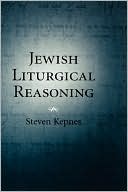Category Books
- Fiction Books & Literature
- Graphic Novels
- Horror
- Mystery & Crime
- Poetry
- Romance Books
- Science Fiction & Fantasy
- Thrillers
- Westerns
- Ages 0-2
- Ages 3-5
- Ages 6-8
- Ages 9-12
- Teens
- Children's Books
- African Americans
- Antiques & Collectibles
- Art, Architecture & Photography
- Bibles & Bible Studies
- Biography
- Business Books
- Christianity
- Computer Books & Technology Books
- Cookbooks, Food & Wine
- Crafts & Hobbies Books
- Education & Teaching
- Engineering
- Entertainment
- Foreign Languages
- Game Books
- Gay & Lesbian
- Health Books, Diet & Fitness Books
- History
- Home & Garden
- Humor Books
- Judaism & Judaica
- Law
- Medical Books
- New Age & Spirituality
- Nonfiction
- Parenting & Family
- Pets
- Philosophy
- Political Books & Current Events Books
- Psychology & Psychotherapy
- Reference
- Religion Books
- Science & Nature
- Self Improvement
- Sex & Relationships
- Social Sciences
- Sports & Adventure
- Study Guides & Test Prep
- Travel
- True Crime
- Weddings
- Women's Studies
Jewish Liturgical Reasoning »

Authors: Steven Kepnes
ISBN-13: 9780195313819, ISBN-10: 019531381X
Format: Hardcover
Publisher: Oxford University Press, USA
Date Published: October 2007
Edition: (Non-applicable)
Author Biography: Steven Kepnes
Steven Kepnes is the Murray and Mildred Finard Professor of Jewish Studies at Colgate University. He is the author of Reasoning After Revelation: Dialogues in Postmodern Jewish Philosophy (with Peter Ochs and Robert Gibbs), Interpreting Judaism in a Postmodern Age, and The Text as Thou: Martin Buber's Dialogical Hermeneutics and Narrative Theology. He is also a co-director of the Society for Scriptural Reasoning.
Book Synopsis
Liturgy, a complex interweaving of word, text, song, and behavior is a central fixture of religious life in the Jewish tradition. It is unique in that it is performed and not merely thought. Because liturgy is performed by a specific group at a specific time and place it is mutable. Thus, liturgical reasoning is always new and understandings of liturgical practices are always evolving. Liturgy is neither preexisting nor static; it is discovered and revealed in every liturgical performance.
Jewish Liturgical Reasoning is an attempt to articulate the internal patterns of philosophical, ethical, and theological reasoning that are at work in synagogue liturgies. This book discusses the relationship between internal Jewish liturgical reasoning and the variety of external philosophical and theological forms of reasoning that have been developed in modern and post liberal Jewish philosophy. Steven Kepnes argues that liturgical reasoning can reorient Jewish philosophy and provide it with new tools, new terms of discourse and analysis, and a new sensibility for the twenty-first century.
The formal philosophical study of Jewish liturgy began with Moses Mendelssohn and the modern Jewish philosophers. Thus the book focuses, in its first chapters, on the liturgical reasoning of Moses Mendelssohn, Hermann Cohen, and Franz Rosenzweig. However, it attempts to augment and further develop the liturgical reasoning of these figures with methods of study from Hermeneutics, Semiotic theory, post liberal theology, anthropology and performance theory. These newer theories are enlisted to help form a contemporary liturgical reasoning that can respond to such events as the Holocaust, the establishment of the State of Israel, and interfaith dialogue between Jews, Christians, and Muslims.
Table of Contents
Subjects
 Judaism & Judaica
Judaism & Judaica  Customs, Practices, & Rituals - Judaism
Customs, Practices, & Rituals - JudaismChristianity
 Judaism & Judaica
Judaism & Judaica  Liturgy - Judaism
Liturgy - JudaismChristianity
 All Religion
All Religion  General & Miscellaneous Religion
General & Miscellaneous ReligionJudaism & Judaica
 Liturgy - Judaism
Liturgy - Judaism  Judaism -> Liturgy
Judaism -> LiturgyReligion Books
 Judaism & Judaica
Judaism & Judaica  Customs, Practices, & Rituals - Judaism
Customs, Practices, & Rituals - JudaismReligion Books
 Judaism & Judaica
Judaism & Judaica  Liturgy - Judaism
Liturgy - JudaismReligion Books
 All Religion
All Religion  General & Miscellaneous Religion
General & Miscellaneous ReligionChristianity
 Christianity
Christianity  All Religion
All ReligionNonfiction
 Religion
Religion  All Religion
All ReligionReligion Books
 Christianity
Christianity  All Religion
All Religion
